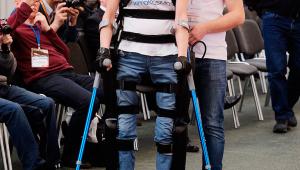NHS England said better use of data and technology had the power to improve health, transform quality and reduce the cost of health and care services.
The report, called Personalised health and care 2020, suggests that, with consent, health records could be available electronically across the health system by 2018 for urgent care services and 2020 for all services.
The plan also includes giving everyone online access to their GP records next year through approved apps and digital platforms.
NHS England argued that technology would play a vital role in helping to contribute £22bn in efficiency savings needed to sustain the health, as set out in the NHS Five Year Forward View.
The National Information Board has been charged with developing the strategy and direction for the health and care system on technology and information to deliver the maximum benefit for citizens and patients, as well as making appropriate recommendations for investment and action.
The partnership will also establish a national digital standard for people at the end of life – building on the success of Co-ordinate My Care in London – so their care preferences are respected. The digitisation of the Personal Child Health Record – the red book – will offer new mothers personalised mobile care records for their child by 2016, NHS England said.
Tim Kelsey, who chairs the NIB and is also NHS England’s national director for patients and information, said: ‘We must embrace modern technology to help us lead healthier lives, and if we want to take more control when we are ill.’
Health Secretary Jeremy Hunt said: ‘I want the NHS to be a world class showcase of what innovation can achieve. Today’s plan sets out how we can give patients 21st century, personalised healthcare.’
The framework will also set out how real-time data will be made available to paramedics, doctors and nurses ensuring patients receive safe and effective assistance at the point to care.
Endorsing the plan, Jane Cummings, chief nursing officer for England, added that the practical application of technology on the frontline will allow nurses and other health-workers to concentrate on what is important, ‘giving meaningful and compassionate care to patients’.
‘Being smarter with data and technology has the potential to make a world of difference to patients, while ensuring best value for the taxpayer,’ she said.




















